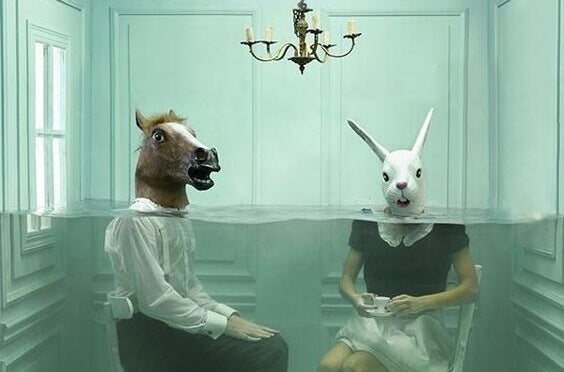Diogenes de Sinope was the father of cynicism, lived in ancient Greece, in the 4th century BC. The ancient followers of this doctrine were very different from today’s cynics, their version was purely critical: they did not agree with many of the hypocrisies of society and wanted to live in a much more authentic way.
The word?Cynic?comes from the Greek root ‘kinus’, which means ‘dog’, so cynicism was a doctrine associated with the ‘dog’. Diogenes lived in absolute poverty, like a dog. At the same time, he embarked on philosophical bites that made him one of the most incisive thinkers of the time, so they began to associate one thing with the other.
- “Cynicism works like a medicine to distance you.
- A painkiller so you don’t feel the danger of existing.
- Until it poisons you.
- At first.
- There is no doubt.
- It relieved you: you managed to laugh at your fears.
- But in the end.
- Did she intoxicated you?-Marcela Serrano-.
Today cynicism has taken on a very different meaning, the cynics of the modern world are those who do not believe in any value and boast about it, do not criticize society for proposing a new way of seeing it, the only intention is simply to denounce it, they finally do nothing about it. Cynics are also called those who take open advantage of others and are even proud of them.
Diogenes is credited with wonderful episodes, full of ethical greatness; he didn’t even have a house, he lived in a barrel; people thought he was a beggar, while wearing rags; however, he was one of the most lucid men. Plato called him “a delusional Socrate. “
It is said that Alexander the Great was interested in meeting this philosopher. He approached him and said, “I am Alexander the Great,” and the cynic replied, “And I am Diogenes, the dog. “After a brief conversation, Alexander said, “Ask me what you want. “Diogenes said, “Where are you, hide the sun?”
According to another story, one day Diogenes was in the square eating vegetables that others had thrown away. Another philosopher came up and said, “If you worked for nobles like me, you wouldn’t have to eat vegetables. “Diogenes replied, “If you ate vegetables like me, you wouldn’t have to work for the nobles. “These episodes give us an idea of what this thinker looked like.
Power and money have always been a source of corruption, anytime, anywhere, yet with the rise of capitalism and, above all, with the fall of great utopias, it has acquired its full power. motivated the most detestable behaviors of human beings.
It could be said that the father of modern cynicism is Machiavelli, the great philosopher of power, he is credited with the famous phrase: “Does the end justify the means?” With this thinker began a series of philosophers who exalted individualism to the maximum. According to them, the characteristic of the human being is extreme selfishness. Any action that provides individual benefits can be valid.
In general, men with high political or economic power have acted with great cynicism, in the modern sense of the word, throughout history, as figures who guide or run societies, have become an example to many, and most see it as effective. Especially after the fall of great ideologies and utopias. Has this conquered the power of money, and does the end justify the means?It has become a valid maxim.
Since the highest levels of power, cynicism has grown and infiltrated everyday relationships. It can be identified especially in links involving some kind of power, such as between employers and employees; between men and women, or in adults versus children.
As cynicism crosses a strong current that goes against all this, cynicism still has an important place in today’s world, sometimes expressed in a subtle way. When the employer, male or adult, imposes an arbitrary test or rule, if the employee, woman, or child resists, they say, “If you don’t like it, you can leave. “
Cynical behavior is perverse. Introducing them into human relationships drives them crazy, in the short, medium or long term they also have negative consequences for those who fall into such behaviors, forge affections, promote hidden transgressions, stimulate hypocrisy, although they provide immediate selfish satisfaction, which is much more important.
Images courtesy of Kylli Sparre

